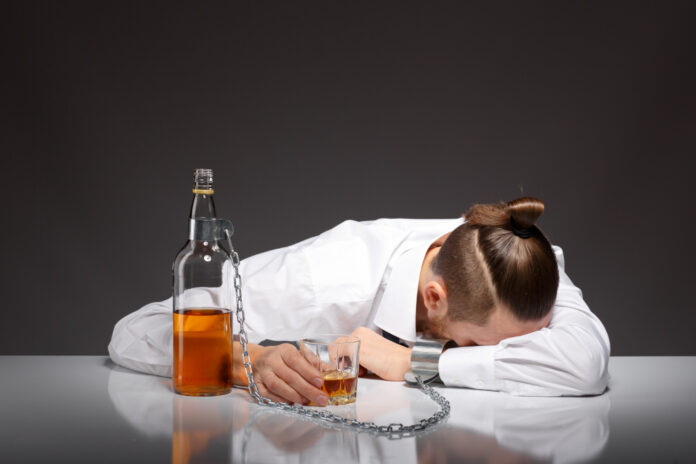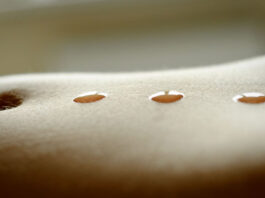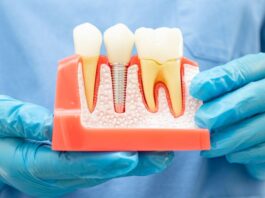Alcohol has a significant impact on the body, affecting everything from our metabolism to our cognitive functions. That’s why its important to know how to get alcohol out of your system.
It’s important to start with a disclaimer: the most effective method with which you can remove alcohol from your body is time, paired with moderation and responsible consumption.
There are no shortcuts to sobriety, and the suggestions provided here by Global Newsly are intended to support, not replace, the natural processes your body undertakes to metabolize and remove alcohol.
What Removes Alcohol From the Body?
The primary mechanism for removing alcohol from the body is through the liver, which metabolizes over 90% of consumed alcohol.
The liver converts alcohol into acetaldehyde, a toxic compound that is subsequently broken down into acetate, a less harmful substance before finally being converted into water and carbon dioxide for easy elimination.
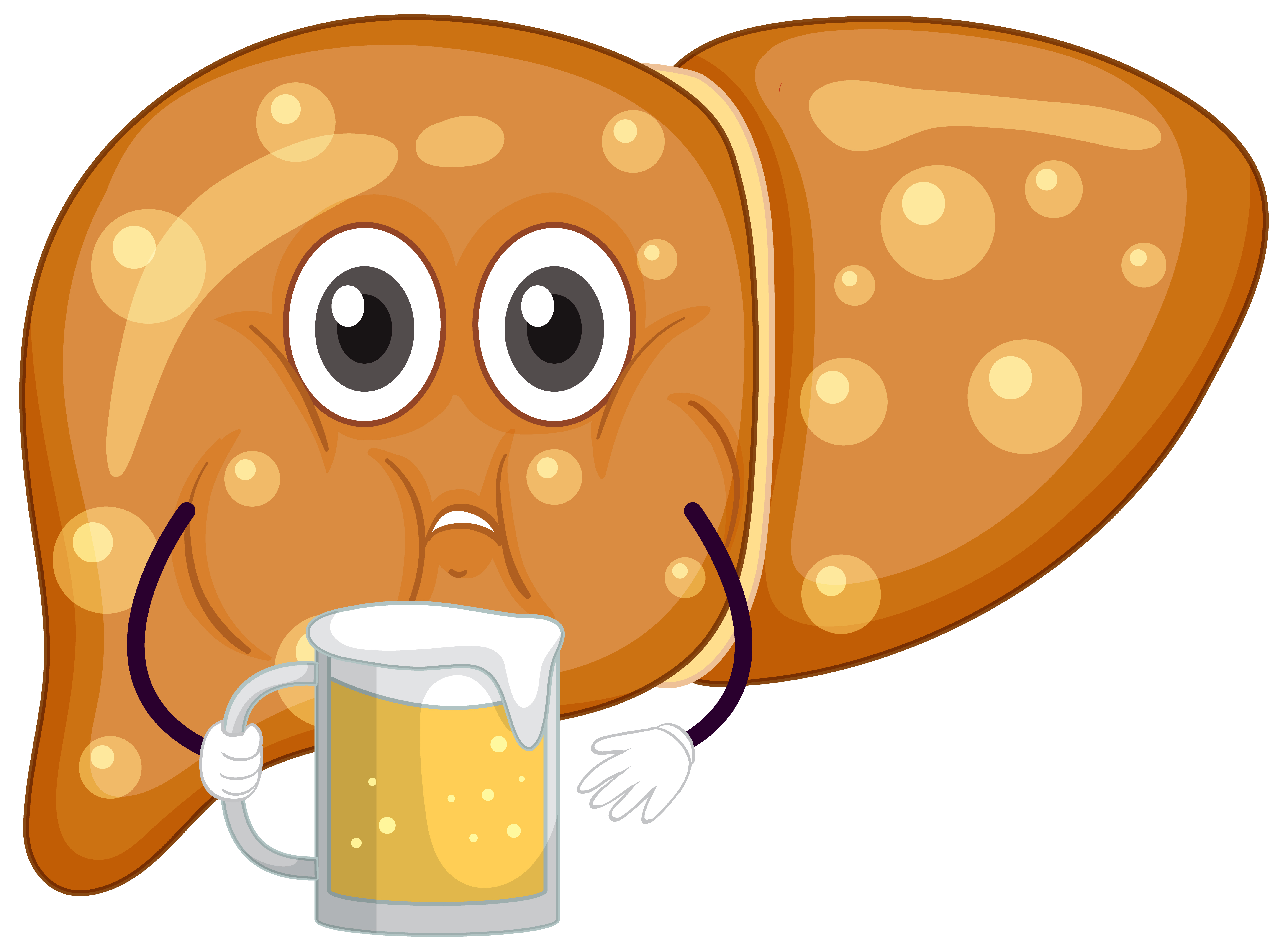
This process is constant, with the liver able to process only a certain amount of alcohol per hour, typically around one standard drink. The rate at which this happens can vary based on several factors, including an individual’s age, gender, liver health, and whether they have eaten food with their alcohol consumption.
In addition to the liver’s central role, a small amount of alcohol is eliminated through other means. For instance, alcohol can be expelled from the body through breath, urine, sweat, and even saliva.
This is why breathalyzer tests can measure blood alcohol content (BAC) levels. Although these routes contribute to the elimination of alcohol, they are significantly less efficient than the liver’s metabolic process and do not significantly speed up the removal of alcohol from the system.
Hydration plays a crucial role in facilitating the elimination of alcohol. And even though drinking water does not directly “flush out” the alcohol, it helps to rehydrate the body, supporting the liver’s function and aiding in the faster processing of alcohol metabolites.
There are various myths and misconceptions about methods to rapidly remove alcohol from the body, such as taking cold showers, drinking coffee, or vomiting. Still, these do not effectively speed up the elimination process.
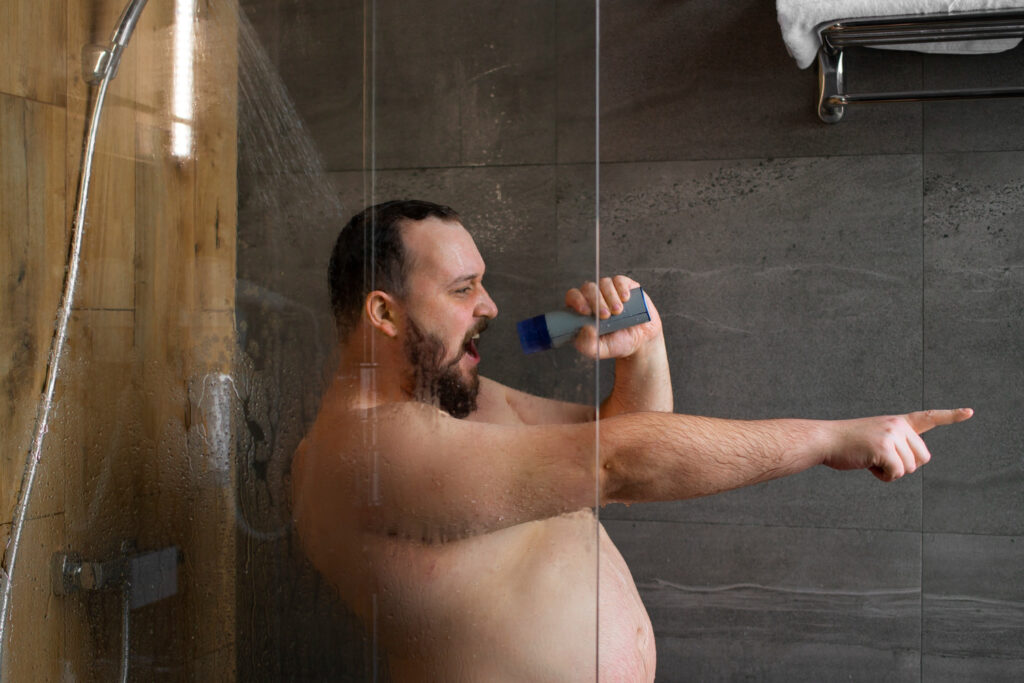
They may relieve some symptoms of intoxication or discomfort but do not influence the liver’s ability to metabolize alcohol. The most reliable way to remove alcohol from the body remains time, allowing the liver to process and remove alcohol at its own pace naturally.
How to Get Alcohol Out of Your System Fast?
When seeking to expedite the elimination of alcohol from your system, there are several immediate steps you can take to support your body’s natural processes.
These steps are designed to aid in metabolizing and removing alcohol more efficiently while also mitigating some of the adverse effects associated with alcohol consumption.
- Stop Drinking: The first and most crucial step is to cease consuming alcohol. This prevents additional alcohol from entering your system and gives your body the opportunity to focus on metabolizing the alcohol already present.
- Hydrate: Increasing your water intake is essential. Alcohol is a diuretic, which means it leads to increased urine production and can quickly dehydrate you. Drinking water helps rehydrate your body, supports your liver in processing alcohol, and aids in flushing out toxins. Aim to drink a glass of water between alcoholic drinks and a significant amount of water before going to bed and the following day.
- Eat Nutritious Foods: Consuming healthy foods can also help in managing and mitigating the effects of alcohol. Foods high in vitamins and minerals, such as fruits, vegetables, and whole grains, can replenish nutrients lost due to alcohol’s diuretic effect. Eating a good meal before drinking can slow the absorption of alcohol into your bloodstream, and continuing to eat well afterward can aid in recovery.
- Rest: Giving your body ample rest is vital. Sleep allows your body to recover and repair itself. While sleeping, your liver works to metabolize the alcohol in your system, so ensuring you get enough sleep can help reduce the alcohol concentration in your body more quickly.
- Avoid Caffeine and Other Diuretics: While it might be tempting to drink coffee or other caffeinated beverages for a pick-me-up, these can further dehydrate you. Stick to water or drinks that replenish electrolytes without caffeine.
How Much Water Should I Drink?
Determining the exact amount of water you should drink to aid in the elimination of alcohol from your body isn’t a one-size-fits-all answer, as it depends on various factors, including the amount of alcohol consumed, your body weight, and overall health.
However, staying well-hydrated is crucial for supporting your body’s natural processes, including the metabolism and excretion of alcohol.
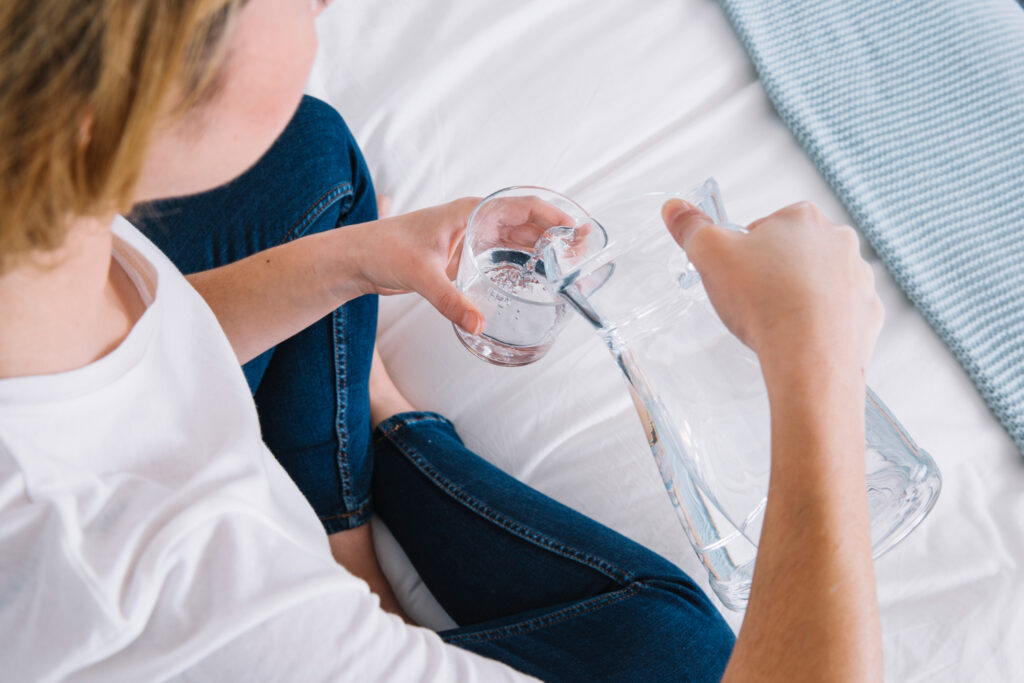
As a general guideline, it’s recommended to drink a glass of water between alcoholic beverages and to consume at least a few glasses of water before going to bed after drinking.
This can help counteract the dehydrating effects of alcohol, as it is a diuretic that causes your body to lose fluids more rapidly than usual. Rehydration aids in diluting the alcohol concentration in your bloodstream. It supports the liver and kidneys in processing and flushing out toxins.
Day After the Alcohol Consumption
For the day following alcohol consumption, aiming to drink at least 2 to 3 liters of water throughout the day can be beneficial. This amount should be adjusted based on your level of activity, the climate you’re in, and your body’s specific needs.
Drinking water not only replenishes fluids lost to alcohol’s diuretic effect but also helps mitigate the symptoms of hangovers, such as headaches and dizziness, which are often signs of dehydration.
It’s also worth noting that while hydrating is essential, drinking water excessively in a short period can lead to water intoxication, a rare but serious condition. Therefore, it’s important to listen to your body and hydrate steadily over time rather than consuming large volumes of water all at once.
How Long Does Alcohol Stay In Your System?
The duration alcohol remains in your system varies widely among individuals and is influenced by several factors, including metabolic rate, body mass, age, gender, and the amount of alcohol consumed. On average, the liver metabolizes alcohol at a rate of about one standard drink per hour, but this can fluctuate based on the variables mentioned above.
A standard drink in the United States is defined as 14 grams of pure alcohol, which is found in 12 ounces of beer, 5 ounces of wine, or 1.5 ounces of distilled spirits. However, the body’s ability to process alcohol begins almost immediately after consumption, and its presence can be detected in the bloodstream within minutes.
Blood Alcohol Concentration (BAC) is a common measure used to quantify alcohol in the system. BAC can peak within 30 to 90 minutes after consumption, depending on whether you’ve eaten and the rate of alcohol consumption.
Although the liver metabolizes alcohol continuously, causing BAC levels to decrease gradually, alcohol can still be detected in various tests for a considerable period after drinking.
For instance, alcohol can show up in blood tests for up to 6 hours, urine tests from 12 hours to 24 hours, and even up to 48 hours with more advanced detection methods. Hair follicle tests can detect alcohol for up to 90 days.
It’s also important to note that the effects of alcohol, such as impaired judgment and coordination, can last longer than the alcohol itself, especially if consuming large quantities. This discrepancy can lead to situations where you might feel sober yet still have a BAC above legal or safe limits.
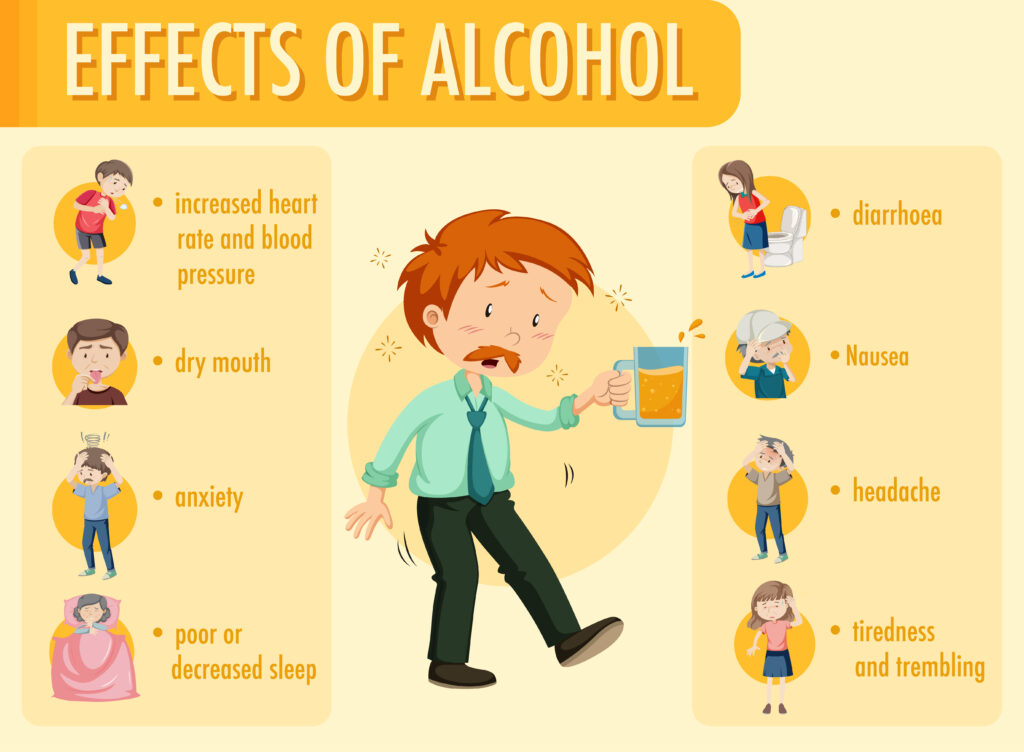
Understanding the factors that influence how long alcohol stays in your system can help manage consumption and anticipate the effects. However, the safest approach to avoiding alcohol-related problems is to consume it responsibly and be aware of your limits and the laws regarding alcohol use in your area.

